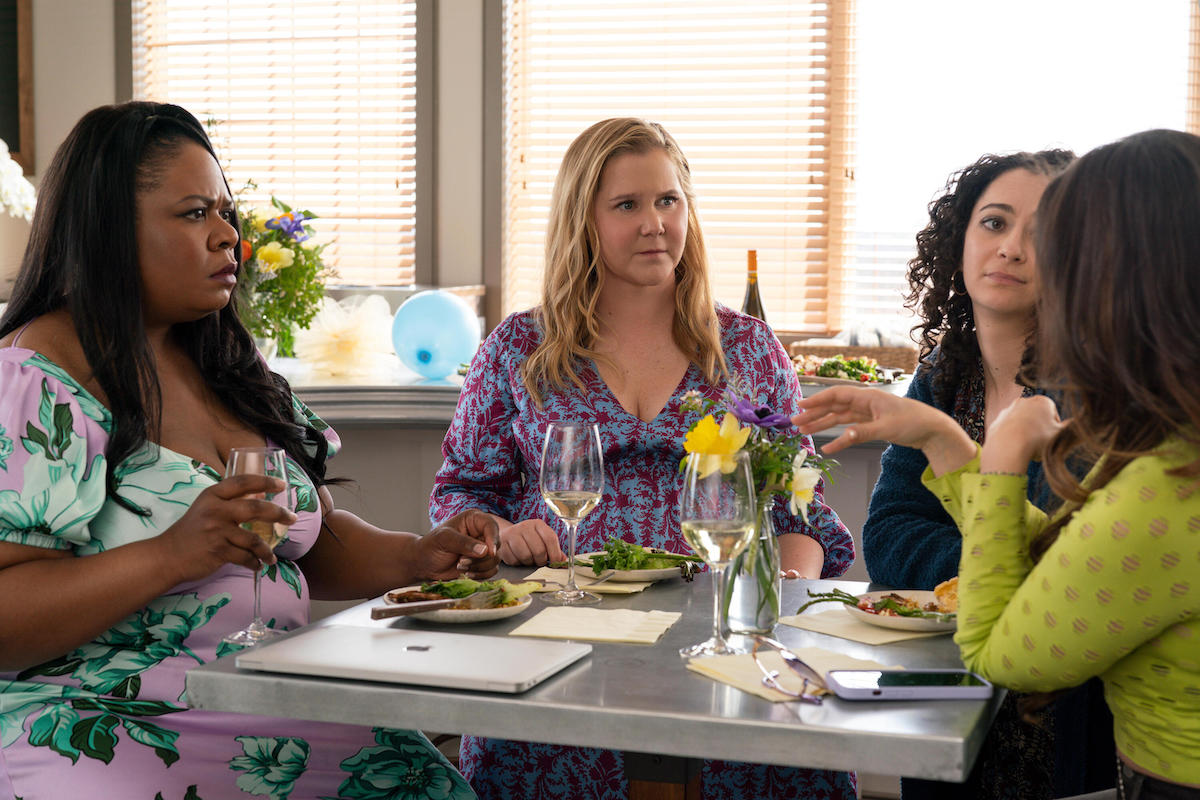The first season of “Life & Beth” was one of my favorite TV seasons of 2022, Jewish or otherwise. Don’t get me wrong — the show, a coming of age story about Beth, whose life goes through an upheaval after her mother dies, was plenty Jewish, featuring a rabbi and a Jewish funeral. At Kveller, we crowned it the best Jewish coming-of-age show of the year. But it was also just my one of my favorites, period.
And yet, season two of the show, which premiered in mid-February, kind of snuck up on me. But now that I’ve watched it, I can report — though it’s hard to believe — that it’s even better than the previous season.
Season two of “Life & Beth” is both funnier and darker than season one. I’m kind of in awe at the many different issues Schumer and the team behind the show managed to tackle this season — and tackle well. Sexual assault, autism diagnoses, abortion, infidelity, substance abuse and childhood antisemitism are just a few of the truly weighty subjects that “Life & Beth” explores in its second season.
Schumer and her team do this by utilizing a diverse and talented staffed writer’s room. For example, “Toxic” (episode 9), features both a Muslim nurse and a story of abortion; it was co-written by Muslim comedy writer Sahar Jahani and Alison Leiby, known for her comedy show “Oh God, A Show About Abortion.”
And while the show can be heavy and tear-jerking, it is also at times so light and so viscerally funny.
Every character on the show has their quirks, but the characters that stand out are the truly ingenious caricatures. These ridiculous characters are over-the-top and unreal-feeling… even though you’ve maybe met a person a little like them. There’s Amy Sedaris as a New Orleans wedding planner who helps plan Beth and John’s (Michael Cera) impromptu wedding, which features live birds and the most ridiculous makeup, which she does herself. There’s Jennifer Coolidge as Madame La Merde, a wacky fortune teller, who brings us one of the most hilarious scenes of the season. And there’s Jemima Kirke as the biggest and most delightful caricature of a doula (her sister, Domino, is notably a doula herself).
And then there are visitors from last season. There’s the rabbi, played by Dave Attell, who yes, doesn’t actually have a name, and who constantly livestreams his services through his phone. And to a lesser extent there’s Shlomo, a kippah-wearing extra-Jewish boyfriend of Beth’s friend Maya (Yamaneika Saunders), played by the very charming Gary Gulman, who manages to make every other conversation about Jewish existential fear. Both Shlomo and the rabbi are ultimately deeply lovable, caring characters. Eccentric Jewish men, and the kind of caricature-like tendencies they have — the rabbi’s obsession with internet fame, and Shlomo’s with Jewish continuity — are ultimately fairly well-intentioned, and watching them played by Jewish actors with a profound connection to their Judaism allows for us to feel as though we are all laughing good-naturedly together.
In contrast to the larger than life characters, the most powerful Jewish moments of the show are small. They’re mostly played in the flashback scenes in which we meet Beth as a teenager, played by the very evocative Violet Young. Schumer has opened up in the past about how growing up in Long Island, she did experience antisemitism from her classmates. In this season of the show, she shines a light on that part of her past through Beth’s experience, as teenage boys call her a “dirty Jewbag” and other antisemitic slurs, and as she asks her sister to iron her hair to make it seem less Jewish.
The show doesn’t content itself with Jewish pain, though; it also shows us Jewish joy. There’s the sweetness of seeing young Beth’s family — her, her mother and her sister — in a moment of harmony that cuts through their usual dysfunction. We see them lighting the Hanukkah candles, singing the prayers together, joking about how getting dreidel socks are “the cornerstone of Judaism.” We see them happy.
If season one is a tale of a woman coming of age while grappling with grief (a grief that, as grief does, resurfaces over and over through season two, too), then season two is the story of what happens when two Jewish sisters experience adulthood together. One of the most poignant and moving arcs of season two is watching Beth and her sister, Ann (Sussanah Flood) come together and find each other. This happens as Beth goes through the journey of becoming a mother and as she remembers how the trauma of their childhood both bonded them and tore them in different directions, towards different coping mechanism.
“Life & Beth” is all about the interconnectivity of the past and the present, about how our childhood and teenage years can paint every moment of our present. As I watched this show, I felt drawn to the past so many times: as Ani DiFranco played in Beth’s childhood bedroom constantly, at the casual and sometimes violent cruelty of teenage boys, at the moment when you are on the precipice of giving birth and so much of your past floats into your mind, right as your life is about to break into a before and after.
Season two of “Life & Beth” felt like a special gift of laughter and meaning in this painful moment, and I can only hope that the show gets renewed for another season. I want so much more of everything it has to offer.








